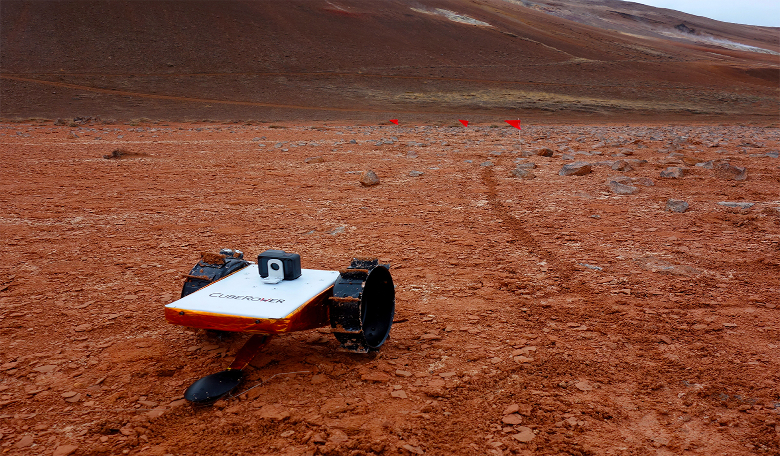Just as the CubeSat has transformed the satellite industry, could the CubeRover soon revolutionise how in-situ data is collected on the Moon and planets other than our own? Theses small, but highly mobile units could do just that, as CubeRover have announced an agreement with Luxembourg for the development of next-generation planetary rovers in the Grand Duchy homeland.
Officially known as the Grand Duchy of Luxembourg, this small landlocked country in western Europe is keen to make its mark on the space industry. Just a few weeks ago, the country formally announced the creation of the Luxembourg Space Agency (LSA) that will be led by Marc Serres, previously the head of space affairs at the Ministry of the Economy.
Rather than conducting scientific research and launching spacecraft missions like other prominent agencies however, the LSA will concentrate on building up the country’s space industry, while supporting education and workforce development and providing innovative financial solutions.
These monetary solutions are expected to come from a new fund, valued at 100 million euros ($116 million), which the agency hopes to establish with the support from other government agencies and the private sector. The fund, according to a government statement, will “provide equity funding for new space companies with ground-breaking ideas and technology.”
Adding to the list of companies that have already set up operations in Luxembourg will be CubeRover. CubeRover is a spin out organisation from Astrobotic Technology, Inc., who partnered with Carnegie Mellon University and NASA to develop the technology.
“The CubeRover is a perfect complement to Astrobotic’s lunar delivery service. As the market leader in commercial lunar activity, we developed CubeRover to respond to customer feedback for a low-cost mobile rover. We are thrilled to partner with the Luxembourg Ministry of the Economy to spin out the CubeRover platform as its own enterprise,” says John Thornton, CEO of Astrobotic.
CubeRovers are very much like their high-flying cousins, CubeSats, in that they use standardised commercial off-the-shelf (COTS) components, enabling them to capture lunar and planetary data at a fraction of traditional rover prices.
“There is no precedent for a planetary rover and its associated flight to the Moon at this price point. The cost of a CubeRover is an order of magnitude less than a traditional planetary rover,” said Mike Provenzano, President of CubeRover.
Luxembourg Deputy Prime Minister and Minister of the Economy Étienne Schneider added: “The launch of CubeRover’s activities in the Grand-Duchy further widens the capabilities of our diversified space ecosystem and confirm that we are home to a vibrant and thriving space economy. Hence, CubeRover will be able to efficiently serve European and international customers from a place where we foster the development of business in space in pragmatic and progressive ways.”
CubeRover’s Luxembourg office will be a focal point for planetary rover design, manufacture, and assembly, as well as a one-stop shop for government agencies, companies, and universities throughout the world to start planning their planetary rover exploration programs.
Although modular in design, each CubeRover can be customised for specific science and exploration missions but if you want to build your own rover, then CubeRover have that covered too.
CubeRovers are now available for purchase as terrestrial testing kits, say the company and will soon be available as standalone vehicles for lunar missions.











